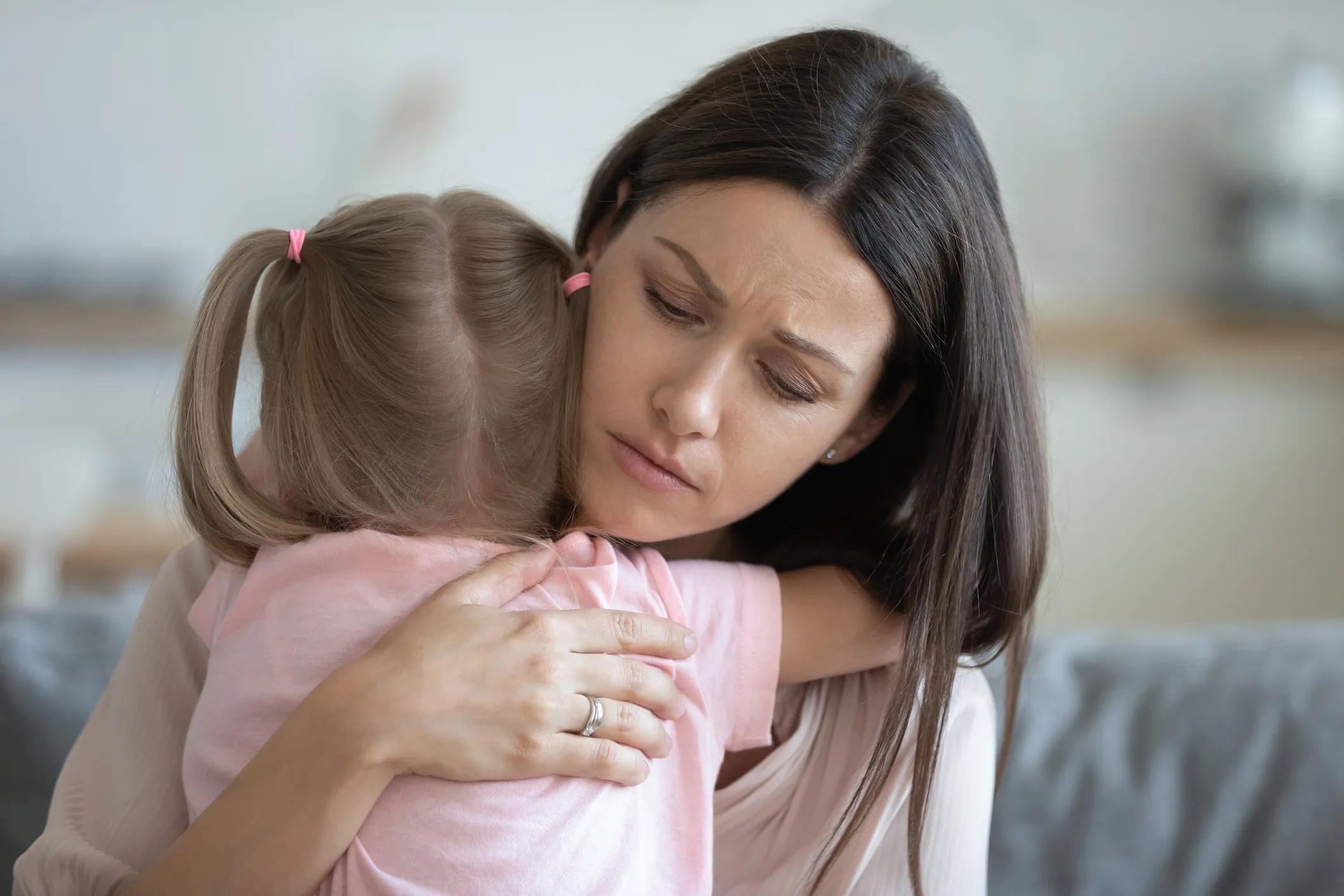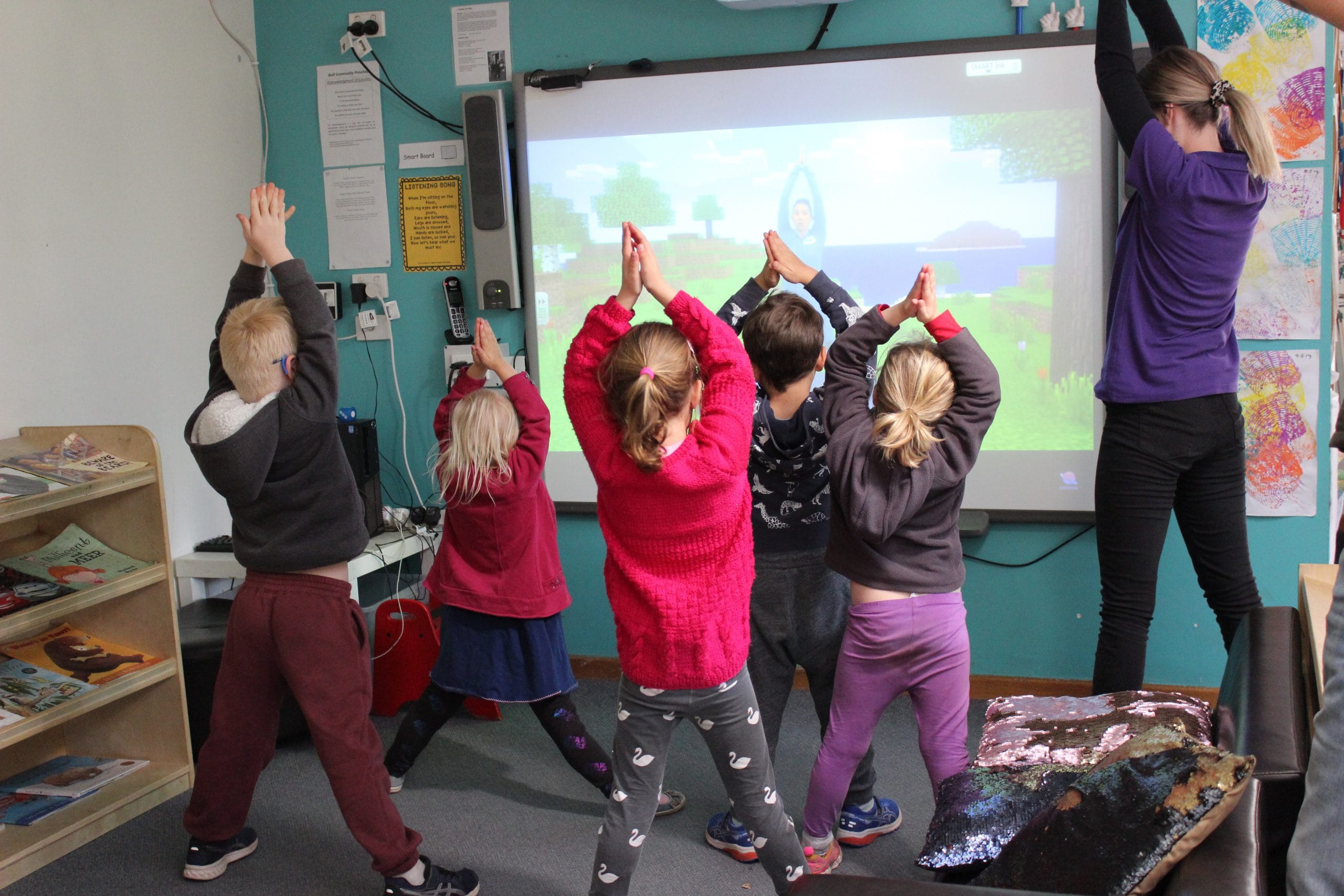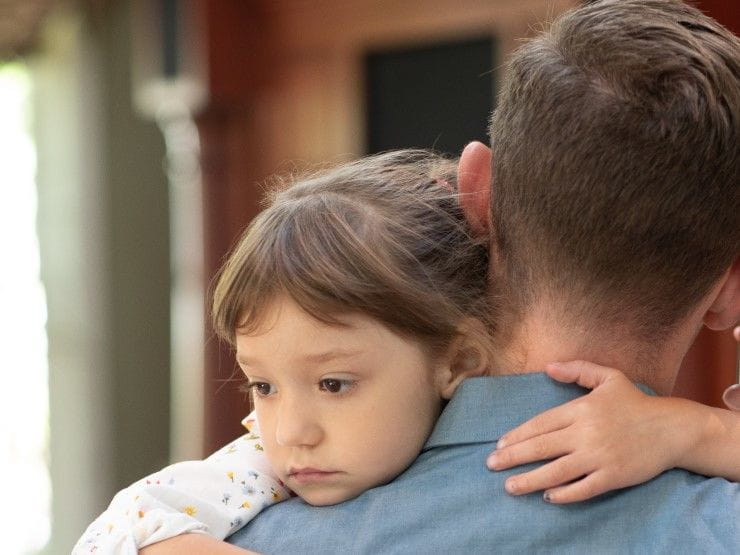What Is the Impact of Parental Anxiety on Kids?
When parental anxiety affects kids, it can lead to behavior changes like difficulty in school and sleep disruptions. Your academic performance may suffer due to trouble concentrating. Your parent’s anxiety might make you feel unsupported and unmotivated. Your emotional stability could be impacted, causing mood swings and changes in behavior. Coping mechanisms like mindfulness and peer support can help you manage stress. Over time, it might even affect your mental health. If you want to understand more about the impact of parental anxiety on kids, it’s important to recognize the long-term effects and strategies for managing it.
Key Takeaways
- Parental anxiety can lead to behavioral changes and academic performance issues in children.
- Children of anxious parents are at increased risk of developing anxiety disorders.
- Parental anxiety can strain the parent-child relationship and cause emotional instability in children.
- Kids develop coping mechanisms to navigate parental anxiety and regulate emotions.
- Long-term effects include mental health issues, social development implications, and health implications for children.
Behavioral Changes in Children
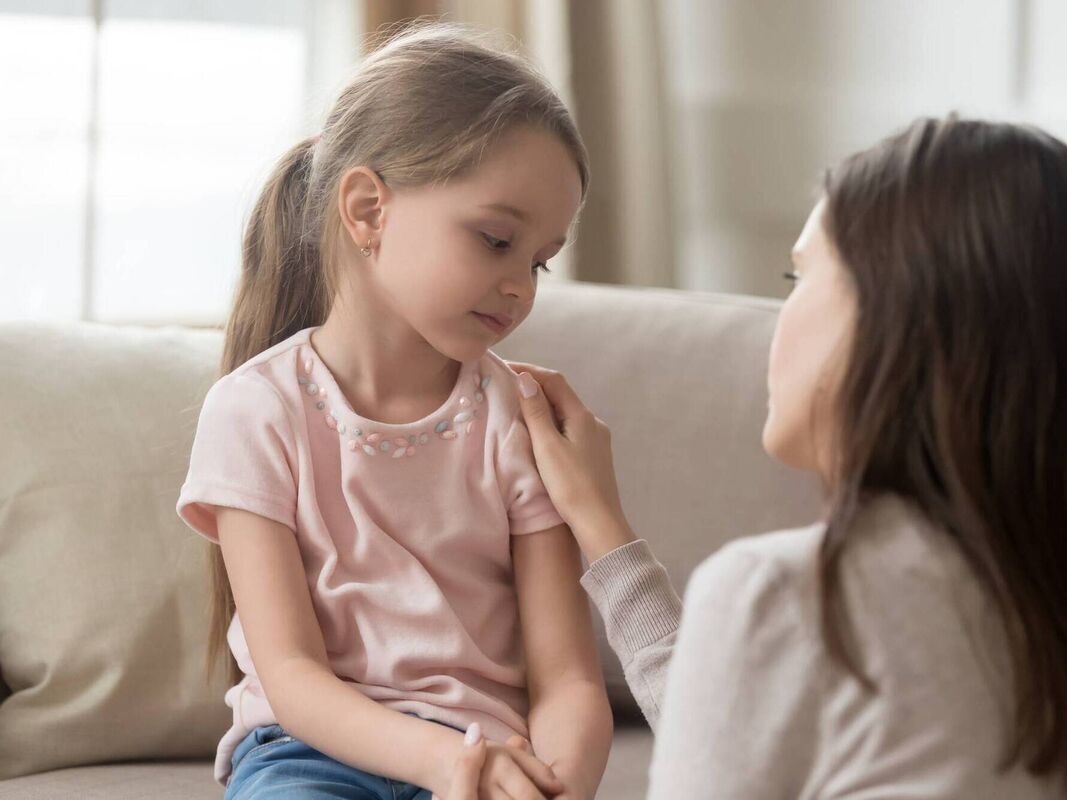
Parents, your anxiety can lead to noticeable behavioral changes in your children. Research indicates that children of anxious parents may experience difficulties with school performance and sleep disturbances. When you’re anxious, it can inadvertently affect your child’s ability to concentrate and excel academically. Children may struggle to focus, leading to lower grades and decreased motivation in school-related activities.
Additionally, sleep disturbances can arise in children due to the heightened stress levels caused by parental anxiety. Lack of quality sleep can further impact their school performance by affecting their cognitive functions and overall well-being.
It is essential to recognize the link between your anxiety levels and your child’s behavioral changes. By managing your anxiety effectively through healthy coping mechanisms and seeking support when needed, you can positively influence your child’s school performance and sleep patterns.
Impact on Academic Performance
Your anxiety levels can greatly impact your child’s academic performance, affecting their ability to concentrate and excel in school. Research shows that high levels of parental anxiety can lead to decreased parental involvement in a child’s education, which is vital for academic success. When parents are stressed or anxious, they may struggle to provide the necessary support and guidance that their children need to thrive academically. This lack of involvement can result in children feeling unsupported and unmotivated, ultimately affecting their school performance.
Stress management is key in maintaining a healthy environment for your child’s academic success. By actively working on reducing your anxiety levels through techniques such as mindfulness, exercise, or seeking professional help, you can create a more positive and supportive atmosphere at home. This, in turn, can lead to improved school performance for your child.
Increased Risk of Anxiety Disorders
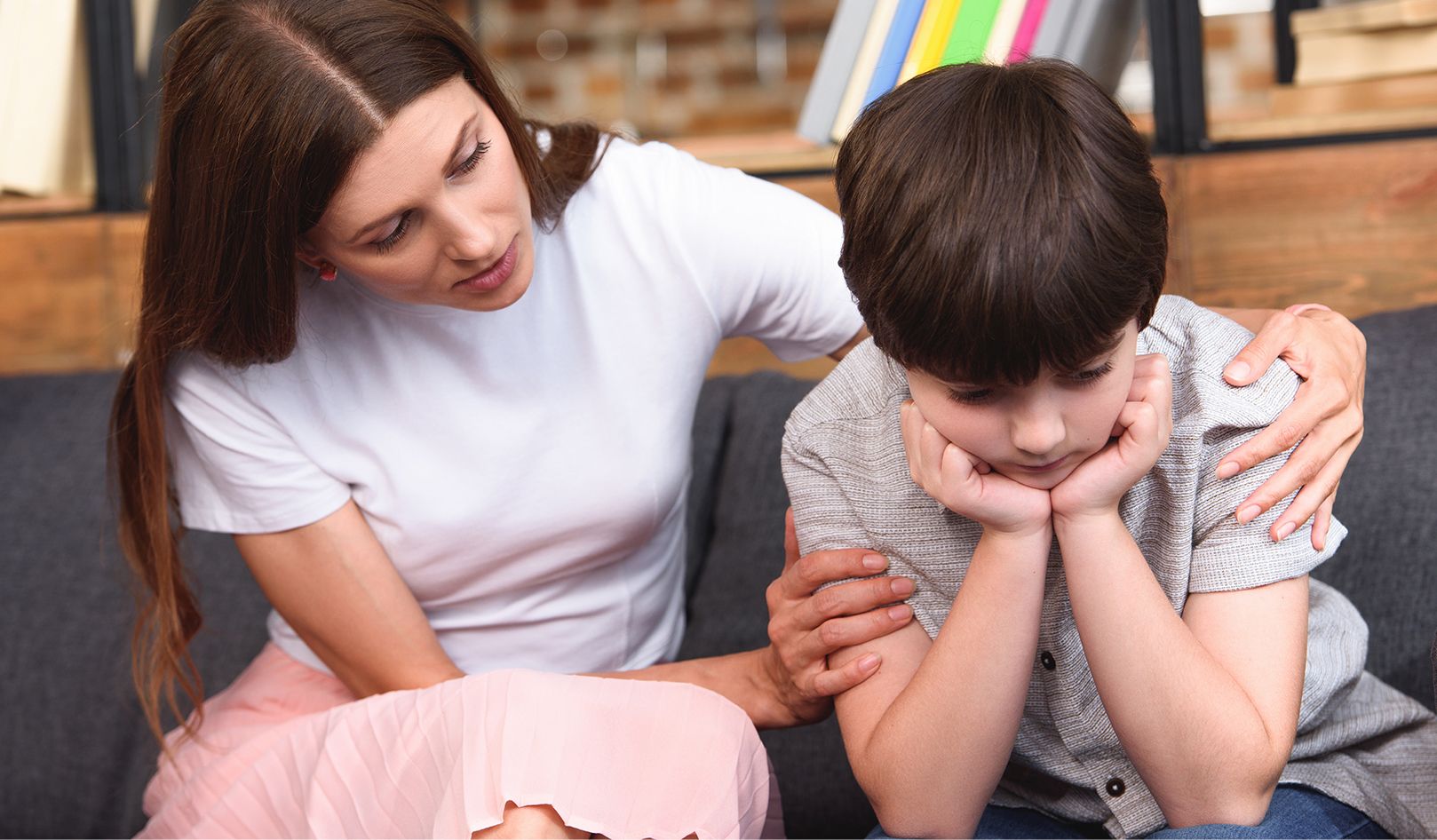
How does parental anxiety impact the likelihood of children developing anxiety disorders?
Research suggests that children of anxious parents are at an increased risk of developing anxiety disorders themselves.
When children consistently witness their parents experiencing high levels of anxiety, they may internalize these behaviors and beliefs, leading to the development of their own anxious tendencies.
To address this issue, therapy options are available for both parents and children.
Family therapy can help improve communication, reduce anxiety levels within the household, and provide coping mechanisms for both parents and children.
Additionally, individual therapy for children can offer a safe space to explore and address their anxiety symptoms.
Preventive measures are also essential in mitigating the risk of children developing anxiety disorders due to parental anxiety.
Parents can work on managing their own anxiety through therapy, mindfulness practices, and self-care routines.
Relationship Strain With Parents
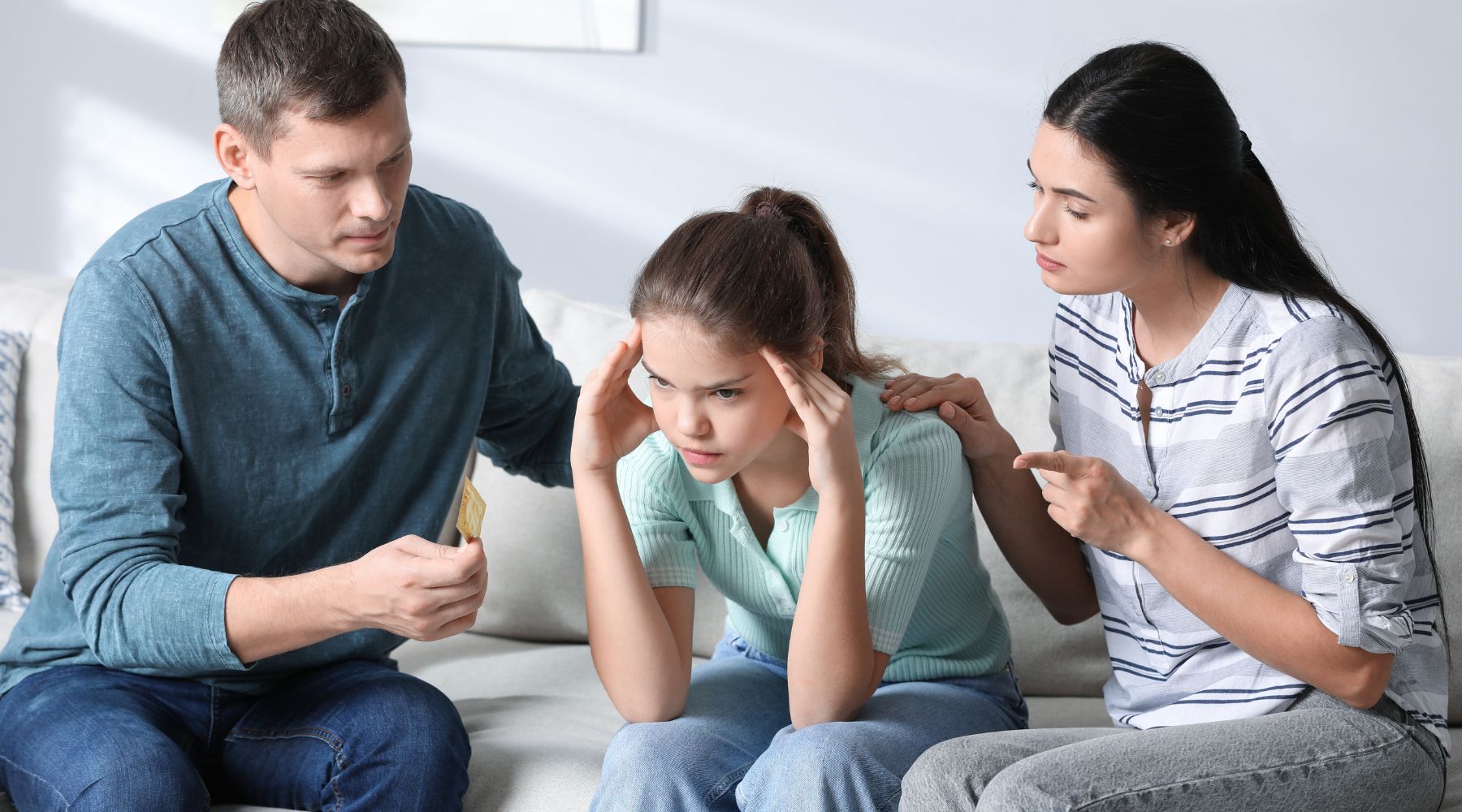
When parents experience anxiety, it can create strain in the parent-child relationship. This strain may lead to difficulties in communication and understanding between you and your parents.
Research suggests that addressing these challenges through open dialogue and seeking support can help improve the relationship dynamics.
Parental Anxiety Effects
Parental anxiety can greatly impact the quality of the relationship between parents and their children, leading to increased strain and tension within the family dynamic. When parents experience high levels of anxiety, it can hinder their ability to provide the necessary parental support and emotional stability that children need for healthy development. This lack of support can create a sense of insecurity and instability for children, affecting their overall well-being.
In such situations, child therapy can be a valuable resource. Child therapists are trained to help children navigate complex emotions stemming from parental anxiety. Through therapy, children can learn coping mechanisms, build resilience, and strengthen their emotional intelligence.
Additionally, child therapists can work with parents to address their anxiety and its impact on the parent-child relationship. By providing a safe space for communication and understanding, child therapy can help alleviate the strain caused by parental anxiety, fostering a more positive and supportive family environment.
Communication Challenges
Experiencing parental anxiety can create significant communication challenges and strain in your relationship with your children, potentially impacting their emotional well-being. Trust building becomes increasingly difficult when anxiety clouds interactions, leading to misunderstandings and heightened tensions.
Miscommunication challenges arise as children may struggle to express their feelings openly when they sense their parents’ anxiety. This can create a cycle where the lack of clear communication perpetuates anxiety in both parents and children.
Research shows that children of anxious parents may interpret ambiguous situations as threatening, affecting how they perceive parental behaviors and responses. Consequently, they may become hesitant to share their own thoughts and emotions, fearing judgment or further adding to their parents’ anxiety.
As a parent, it’s essential to acknowledge these communication hurdles and actively work towards fostering open, honest dialogues. By addressing anxieties and promoting a supportive environment, you can help break the cycle of miscommunication and strengthen the bond with your children, enhancing their emotional well-being.
Emotional Instability in Kids
Children often face emotional instability as a result of parental anxiety, impacting their overall well-being and development. When parents experience heightened levels of anxiety, children may internalize these emotions, leading to increased feelings of fear, stress, or uncertainty. This emotional instability can manifest in various ways, such as mood swings, difficulty concentrating, or changes in behavior.
Parental support plays an essential role in helping children navigate these turbulent emotions. By providing a safe and open environment for children to express their feelings, parents can help alleviate some of the emotional burden caused by parental anxiety. Additionally, seeking professional help, such as therapy or counseling, can offer children valuable tools to cope with their emotions effectively.
It is vital for parents to prioritize their mental well-being to create a stable and nurturing environment for their children. By addressing parental anxiety and seeking appropriate support, parents can help mitigate the impact of emotional instability on their children’s development and overall happiness.
Coping Mechanisms Adopted by Children
As a child facing parental anxiety, you may develop various coping mechanisms to navigate through challenging emotions. These strategies could include techniques for regulating your feelings and seeking support from friends or peers.
Understanding how children adapt and cope can shed light on the resilience and strength they possess in the face of adversity.

Children’s Coping Strategies
It’s common for kids to develop various coping strategies in response to parental anxiety, which can greatly impact their emotional well-being and overall development.
Children often turn to mindfulness techniques and peer support to navigate the challenges caused by their parents’ anxiety. Mindfulness techniques, such as deep breathing or guided imagery, can help kids manage their own stress and worries. Additionally, seeking support from friends or siblings can provide a sense of understanding and comfort during difficult times.
Engaging in creative activities and outdoor play are also effective coping mechanisms for children dealing with parental anxiety. Creative endeavors like drawing, writing, or crafting allow kids to express their emotions in a healthy way. Outdoor play, on the other hand, offers a much-needed break from the stress at home and encourages physical activity, which is beneficial for mental well-being.
Emotional Regulation Techniques
Amidst parental anxiety, children often adopt various emotional regulation techniques to navigate their own emotions and maintain a sense of stability in their lives. These coping mechanisms are essential for children to handle the stress and uncertainty that may arise from their parents’ anxiety.
One effective emotional regulation technique is mindfulness practice. Encouraging children to engage in mindfulness activities can help them become more aware of their emotions and thoughts, allowing them to respond to challenging situations with greater clarity and composure.
Additionally, relaxation techniques such as deep breathing exercises or progressive muscle relaxation can help children manage feelings of anxiety or overwhelm.
Research suggests that teaching children these emotional regulation techniques can lead to improved emotional intelligence and better overall mental well-being. By empowering children with these tools, they can develop resilience and adaptive coping strategies to navigate the impact of parental anxiety on their emotional health.
Seeking Support From Peers
Children facing parental anxiety often cope by seeking support from their peers, an essential mechanism that provides them with a sense of understanding and connection during challenging times. Peer support plays a pivotal role in helping children navigate the emotional turmoil that may arise from their parents’ anxiety.
Through friendships and social interactions, kids can learn coping strategies, share their feelings, and gain insights into managing their own emotions.
Friendships offer a safe space for children to express themselves openly, receive empathy, and feel less alone in their struggles. When kids confide in their peers about their parents’ anxiety, they often find solace in knowing that others may be facing similar situations. This shared experience fosters emotional regulation and resilience, enabling children to develop healthier ways of dealing with stress and uncertainty.
Long-Term Effects on Mental Health
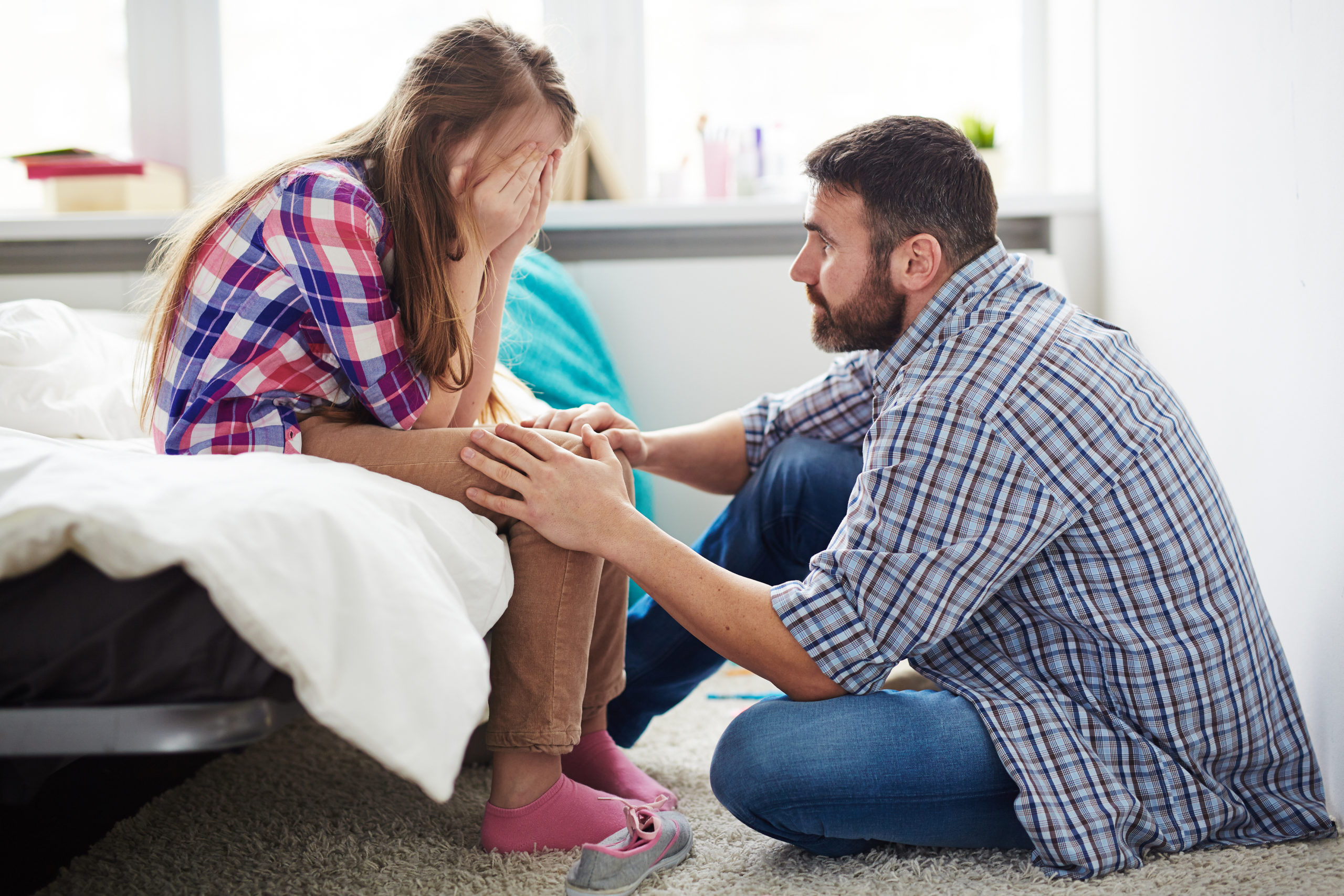
Considering the long-term effects of parental anxiety on children’s mental health sheds light on the lasting impact of this significant parental influence. Research indicates that children exposed to chronic parental anxiety are at a higher risk of developing mental health issues later in life. These children may experience heightened levels of stress, anxiety disorders, depression, and low self-esteem as they grow older. It’s important to address these concerns early on to prevent long-lasting consequences.
Therapy options, such as cognitive-behavioral therapy, play an essential role in helping children cope with the effects of parental anxiety. Through therapy, children can learn healthy coping mechanisms and strategies to manage their emotions effectively. Additionally, support groups provide children with a safe space to share their experiences, receive guidance, and connect with others facing similar challenges.
Social Development Implications
As a parent, it’s important to recognize how your anxiety can impact your child’s social development. Children may struggle with social skills when raised in an environment of high parental anxiety, leading to challenges in forming connections with peers.
Additionally, emotional regulation issues stemming from parental anxiety can affect how children navigate and maintain relationships with others.
Social Skills Affected
Parental anxiety plays a pivotal role in the development of social skills in young individuals, potentially impeding their ability to form meaningful connections and navigate social interactions effectively. When children grow up in an environment where parents display high levels of anxiety, they may internalize these feelings, leading to challenges in social interactions. Research suggests that children of anxious parents are more likely to exhibit social withdrawal, have difficulty making friends, and struggle with communication.
The impact of parental anxiety on children’s social skills goes beyond just the immediate interactions; it can affect their emotional well-being as well. Kids may experience heightened stress in social situations, leading to feelings of inadequacy or fear of judgment. These emotions can further hinder their ability to develop healthy relationships and engage positively with peers.
Understanding the link between parental anxiety and social skill development is vital in supporting children effectively. By providing a nurturing environment, teaching coping strategies, and seeking professional help when needed, parents can help their children overcome these challenges and thrive in social settings.
Emotional Regulation Challenges
Children raised in environments where parental anxiety is prevalent may face emotional regulation challenges that greatly impact their social development, affecting their ability to navigate and regulate emotions in social interactions. Research suggests that when parents exhibit high levels of anxiety, children are more likely to struggle with emotional regulation, leading to difficulties in managing their feelings effectively in social settings. These challenges can manifest in outbursts, withdrawal, or difficulty expressing emotions appropriately, hindering their social skills development.
Therapy options such as cognitive-behavioral therapy (CBT) or play therapy can be effective in helping children develop healthy emotional regulation strategies. These therapies provide tools and coping mechanisms to manage emotions and navigate social interactions more effectively. Stress management techniques, including mindfulness practices and relaxation exercises, can also be beneficial in assisting children in regulating their emotions and reducing anxiety levels.
Peer Relationships Impacted
The impact of parental anxiety on kids’ emotional regulation can greatly affect their peer relationships, leading to social development implications that may hinder their ability to form and maintain healthy connections with others. Children exposed to high levels of parental anxiety may struggle with social withdrawal and face peer rejection due to difficulties in managing their own emotions effectively.
Trust issues can arise as these children may find it challenging to confide in others or believe in the authenticity of their friendships. Additionally, friendship dynamics may be compromised, with anxious children experiencing heightened levels of uncertainty and insecurity in their relationships with peers.
Research suggests that these social challenges stemming from parental anxiety can have long-term effects on children’s social development, potentially impacting their ability to build strong, supportive social networks and navigate social interactions effectively. Understanding and addressing these implications early on is important in supporting children in developing healthy peer relationships and fostering positive social development.
Physical Health Consequences
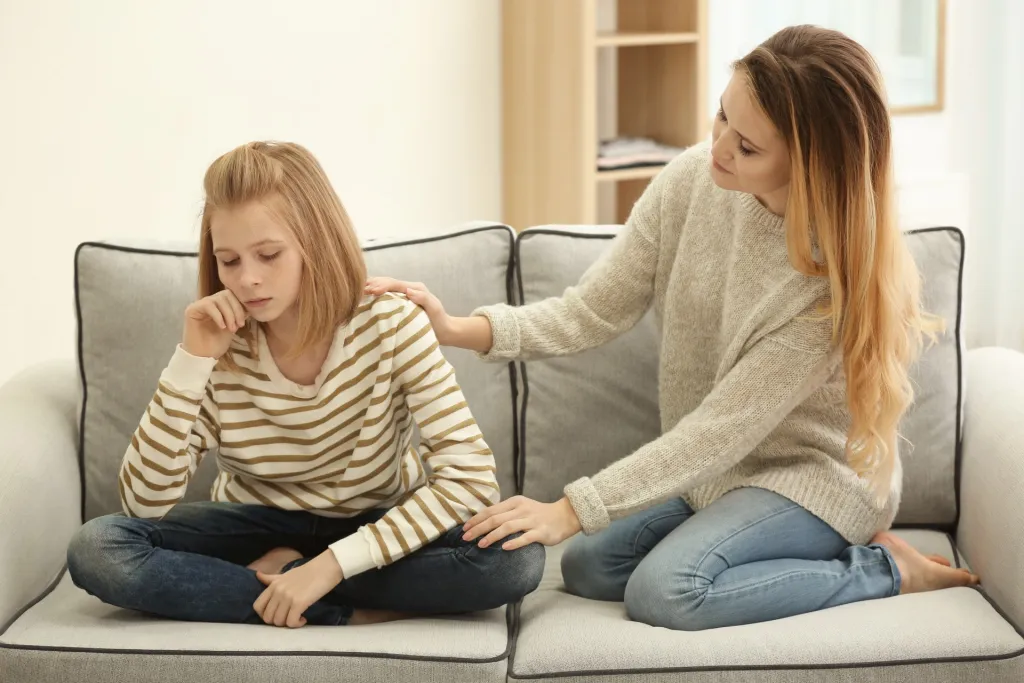
Experiencing chronic parental anxiety can have a significant impact on your child’s physical health, leading to a range of potential consequences that shouldn’t be overlooked. The stress management techniques parents use or lack thereof can greatly influence their children’s well-being. Research has shown a strong correlation between high levels of parental anxiety and increased stress levels in children.
This heightened stress response can manifest in various health implications for your child. Children of anxious parents may experience more frequent headaches, stomachaches, and fatigue. Chronic exposure to parental anxiety can weaken your child’s immune system, making them more susceptible to illnesses. Additionally, children may also exhibit sleep disturbances, which can further exacerbate their physical health issues.
The long-term implications of these physical health consequences can be profound, potentially leading to more serious conditions if not addressed. Therefore, it’s important for parents to prioritize their own mental health and stress management to safeguard a healthy environment for their children. By taking steps to manage parental anxiety effectively, you can help protect your child’s physical well-being.
Strategies for Parental Anxiety Management
To effectively manage parental anxiety and mitigate its impact on your child’s physical health, implementing strategic coping mechanisms is vital. Engaging in mindfulness practices can help you stay present and reduce feelings of overwhelm. By focusing on the current moment, you can alleviate worries about the future.
Additionally, incorporating stress management techniques such as deep breathing exercises, progressive muscle relaxation, or yoga can aid in calming your mind and body.
Establishing a support system is important. Talking to friends, family, or a therapist about your anxiety can provide emotional relief and different perspectives. Remember, seeking help is a sign of strength, not weakness.
Setting realistic goals and priorities can also alleviate the pressure you may be feeling.
Furthermore, maintaining a healthy lifestyle through regular exercise, proper nutrition, and sufficient sleep can enhance your resilience to stress. It’s crucial to take breaks when needed and practice self-compassion.
Frequently Asked Questions
Can Parental Anxiety Affect a Child’s Ability to Form Friendships?
When parental anxiety is present, it may impact a child’s social development and emotional well-being, affecting their ability to form and maintain friendships. Peer relationships and childhood friendships can be influenced by this parental stress.
How Does Parental Anxiety Impact a Child’s Self-Esteem?
When parental anxiety affects you, your self-esteem may suffer. This can impact your academic performance, emotional development, social interactions, and coping skills. Research shows that parental anxiety can create challenges in these areas for children.
Are There Differences in How Boys and Girls Are Affected by Parental Anxiety?
When it comes to gender differences in how kids are affected by parental anxiety, boys and girls may develop distinct coping strategies. Long-term consequences might manifest in varying ways, impacting academic performance differently between the two genders.
Can Parental Anxiety Lead to Behavioral Issues in Teenagers?
Parental anxiety can indeed lead to behavioral issues in teenagers. It may impact academic performance, trigger social withdrawal, encourage risk-taking behaviors, and hinder emotional regulation. Understanding these effects is essential for supporting adolescents through such challenges.
Is There a Genetic Component to How Parental Anxiety Affects Children?
In understanding the genetic predisposition in childhood development, it’s essential to contemplate how environmental factors influence coping mechanisms. Reflect on how parental anxiety intertwines with these elements to shape a child’s emotional resilience.
Conclusion
As a parent, it’s important to recognize the impact of your anxiety on your children. Research shows that parental anxiety can lead to behavioral changes, academic struggles, and increased risk of anxiety disorders in kids.
By managing your own anxiety through strategies like therapy and self-care, you can create a healthier environment for your children to thrive emotionally, academically, and socially.
Remember, taking care of yourself is ultimately taking care of your children.

Hey there! 👋 I’m a proud mom and passionate writer, sharing my parenting journey. 📝 Join me as I navigate the ups and downs of motherhood, offering tips, advice, and a sprinkle of humor along the way. 🌟

